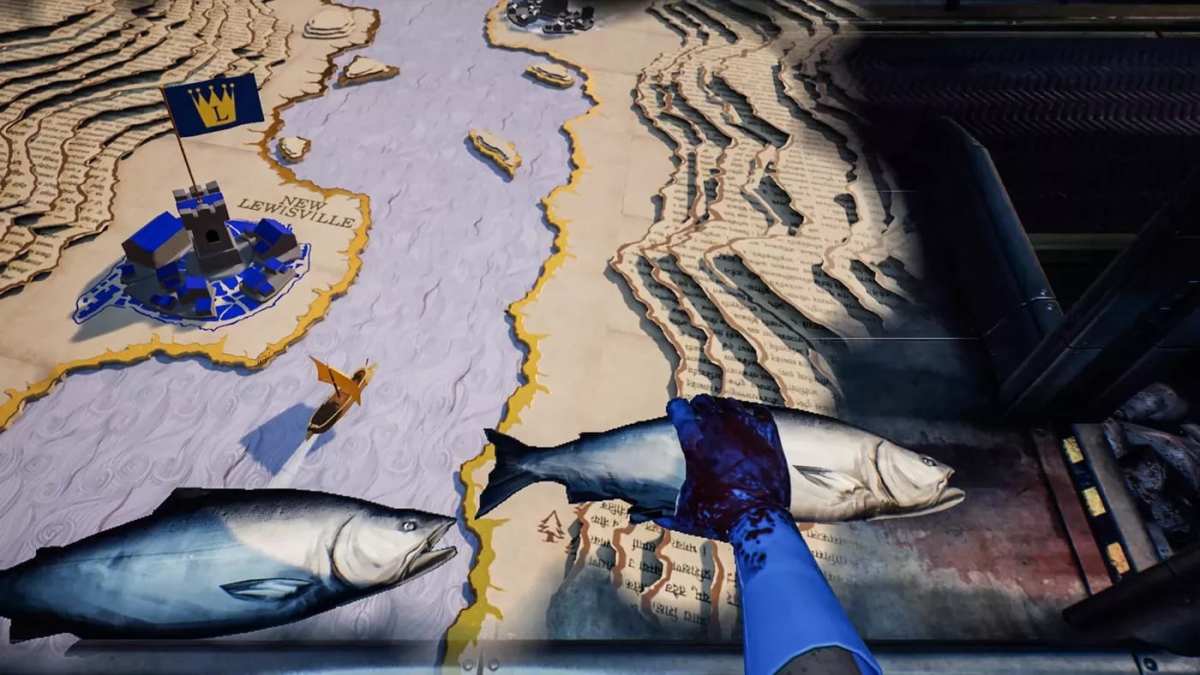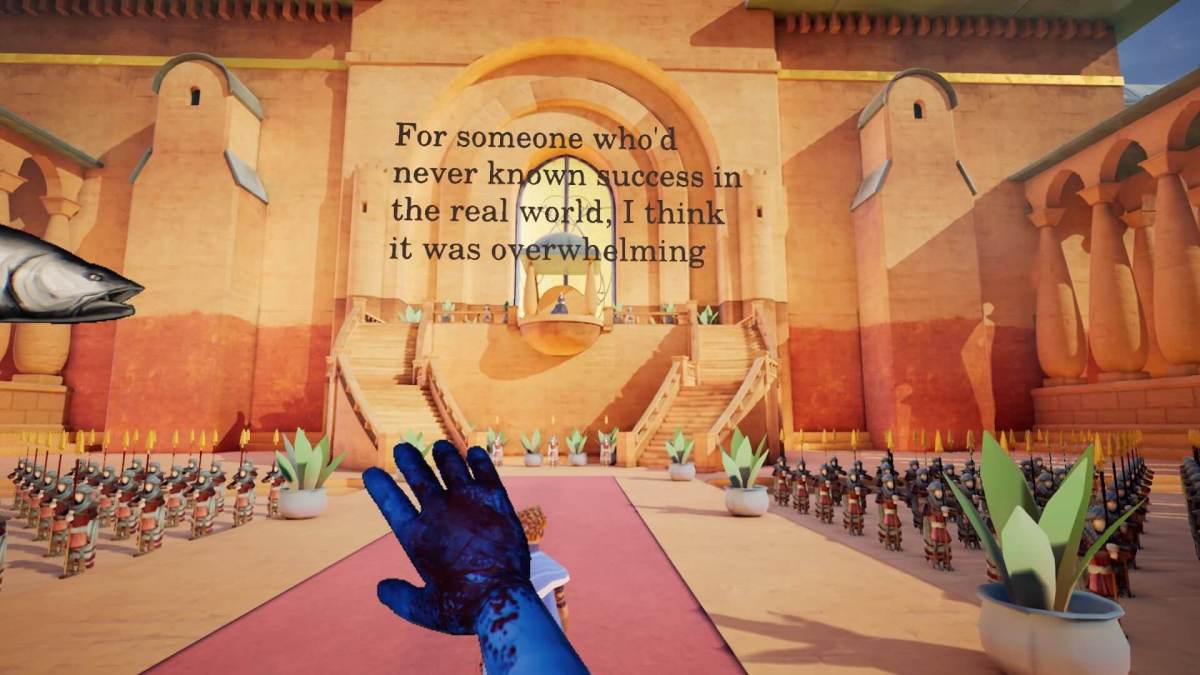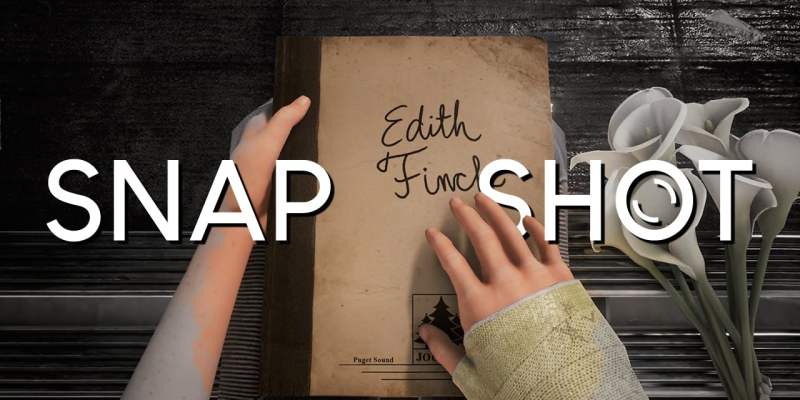This article contains major spoilers for What Remains of Edith Finch.
“The house was exactly like the way I remembered it. The way I’d been dreaming about it.” These are the words spoken by the titular narrator as you first approach the fantastical house in 2017’s What Remains of Edith Finch, a first-person exploration game in the vein of Gone Home and Firewatch. Amidst the dense forests of the Pacific Northwest, the house grows tall from the ground and stretches out in all directions, a century of remodels and additions making it resemble the family tree that it held as its occupants. This place wasn’t just home to several generations of the Finch family, but also to the familial curse that followed them all the way from when their ancestors sailed from Norway to Washington state. A curse that doomed nearly every member of the family to an early and tragic demise.
You spend your time exploring the home and the various rooms that belonged to each member of the Finch family. Within the twisting maze of rooms, you find objects that allow you to experience a short vignette of their final moments of life, each one presented in a different surreal and allegorical fashion. They all exude equal parts beauty and tragedy, but none so much as the devastatingly unforgettable story of Edith’s older brother Lewis Finch, his job at the local fish cannery, and his road to awe.
Just one look at Lewis’ abandoned room says a lot about who he was in life. Black lights, drug paraphernalia, prescription medication, and video games stretch across his living space in a physical manifestation of the escapism he so desperately craved. An escape from his ever-dwindling family, an escape from the Gordian knot of their supposed curse, and an escape from the doldrums of his job on the assembly line of the local fish cannery. Or, I guess a better word to use would be disassembly line, which is where we find ourselves in Lewis’ story.

We enter Lewis’ tale through a letter sent to his mother from his psychiatrist following his death. We begin through Lewis’ eyes as he goes through the literal motions at his job. Using the right analog stick, we move one hand over to a fish that enters on a conveyor belt from the left to a guillotine on the right. One the fish is beheaded, we toss the body forward and begin the process again. The tedium transforms into muscle memory as our right hand grows accustomed to the job. This singular action becomes our metronome for this segment, but more importantly, it became Lewis’ metronome for his entire life. Grab a fish, chop a fish, toss a fish: a three-step process that he was able to do with the sort of tireless automation that drew praise from his superiors, who remarked that his machine-like efficiency made him a model employee.
Grab a fish, chop a fish, toss a fish.
But while this is where the body of Lewis Finch resides, his mind is elsewhere. While your right hand controls the assembly line, your left enters an evolving world in Lewis’ imagination. His mind wanders to a land where he isn’t shackled to the menial rhythm of his life, where he’s a brave adventurer exploring a fantasy realm. It begins as a simple top-down adventure in a small thought bubble in the corner of the screen. At first, it’s a slightly more updated version of the classic 1979 game Adventure for the Atari 2600. Amidst the narration of his psychiatrist’s letter, you control Lewis making his way through a monochromatic maze with one hand, all while simultaneously continuing his daily routine with the other.
Grab a fish, chop a fish, toss a fish.

The adventure in his mind slowly grows, adding color and objects and life to the world. Using a torch to illuminate his surroundings, the fantasy suddenly evolves into an isometric perspective full of vibrant energy. The music of his imagination begins to drown out the sounds of the real world, save for the scheduled violent snap of the guillotine. Lewis parades through a town as the citizens line up to cheer his heroism. With one city conquered, he commandeers a boat and takes to the sea, setting off to explore the uncharted waters.
The bubble that this fantasy plays out in continues to grow, encroaching on your view of the reality of the cannery. Lewis’ kingdom expands as the words of the psychiatrist tell us that the fantasy inside of his head began to feel more real than the life he lived outside of it. He became so engrossed in his creation that he even forgot to go home one day. You see a brief snippet of his mother showing up to work, the letter continuing, “Even as his mother pleaded with him, part of Lewis kept sailing on.” But through all of it, his work never ceased.
Grab a fish, chop a fish, toss a fish.
The fantasy grows yet again, taking up the entirety of the screen save for Lewis’ arm and the endless stream of salmon. The simplistic top-down maze is now a massive third-person world brimming with color and life. Lewis enters the massive hall of a foreign queen, fully prepared to become her king. The letter states, “For someone who’d never known success in the real world, I think it was overwhelming.” To Lewis, the roles of the two worlds begin to reverse. He’s not working in a cannery and dreaming of being a king, but rather the exact opposite.
The adventure morphs once again, this time into first-person. Lewis the adventurer briefly leaves his bright kingdom for a trip through the dull monotony of his cannery. He walks past the shell of his former self, standing as a prisoner over the conveyor belt. As he turns his back on that false self and walks back into the light, you can still hear the three-step metronome tick.
Grab a fish, chop a fish, toss a fish.

The fantasy culminates with you walking through the triumphant hall of your new queen. As you ascend a velvet staircase, you can already see what the future has in store for you. At the top, your queen waits with your crown in hand, only one final obstacle standing between you and the life you were meant to have. “There was only one thing left to do,” the letter ominously tells us as Lewis approaches the guillotine. “Bend down his head,” are the words spoken as we do just that, our queen crowning us at the exact moment we hear the snap of the blade as it comes crashing down. “And the rest I think you know,” the psychiatrist’s sad letter concludes. “Mrs. Finch, your son was a kind man who will be missed by all of us who knew him.”
There’s a power to the stories we tell, not necessarily because they’re true, but because the act of telling them itself gives them power. There’s no way to tell if the family curse was real, or if the mere fact that they believed in it made it real. It didn’t matter to Lewis, because by the time he came of age, he had already spent so much time submerged in the idea of it that it became a part of him.
What Remains of Edith Finch is built of a dozen or so tragedies of this kind, and experiencing how Lewis’ wanderlust morphed into its own doomed fate is truly heartbreaking. Furthermore, this powerful vignette comes right on the heels of the discovery of the room of Edith and Lewis’ other brother, Milton. The way his story dovetails with developer Giant Sparrow’s previous game The Unfinished Swan adds a powerful layer to both pieces individually, as well as when paired.
At one point in the game, Edith delivers the following line with a tired resignation: “For what it’s worth, I think the people in these stories actually believed them.” And creating his own story was the only way Lewis knew how to escape the tragic cycle of his life. Grab a fish, chop a fish, toss a fish.
